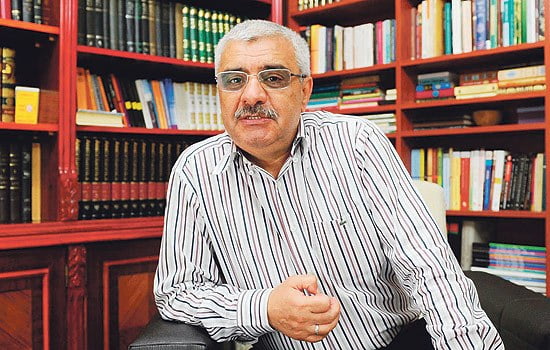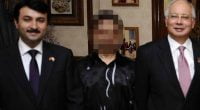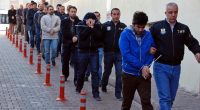Politics and communities

Date posted: March 3, 2014
ALİ BULAÇ
One way to understand the ongoing tension between the ruling Justice and Development Party (AK Party) and the Hizmet movement (the Community) is to look at the past.
Our historical heritage seems to continue to haunt us. In the Ottoman Empire, the state was at the center of political and administrative life, and the Ottoman territories were the estate of the sultan and the sultan’s dynasty. The sultan did not accept partners when it came to his estate. In order to prevent potential attempts to seize this estate, the military and civil bureaucrats were specifically selected from converts. The mothers of the princes were non-Muslim women. Thanks to the fact that the civic sphere was safeguarded by the Islamic sharia, this system functioned without disturbing the subjects for many centuries. Of course, sultans had occasional rivals. There were no clashes among peasants, workers and other social classes, but local lords (beys) revolted against the Ottoman state from time to time.
The Ottoman state adopted the following methods for confronting these lords: They would first be given major posts within the state apparatus. Some lords were even allowed to become viziers. This method generally worked because the lord and his followers abandoned their challenge against the state. If it was impossible to stop the lord by granting him a state position, then the Ottoman state would support “rival lords” (in today’s discourse, rival communities) against the lord who had revolted. If the competition ended up with a victory by the lords financed by the sultan, this meant that the sultan’s estate, i.e., the country, was secured. If a formidable lord emerged and defied the rival lords backed by the sultan, then the sultan’s last resort was to behead the lord and confiscate his estate, which was risky. But property was also confiscated if it belonged to those who committed crimes, revolted against the state, were implicated in corruption or wronged their subjects.
This method is understandable only through the lens of history. The use of this method in the nation states of modern times or in the new political cultures of the postmodern era is anachronistic, and it perplexes ruling elites about what time they are living in. The nation state has to delegate part of its sovereignty to (a) local identities and units (e.g., the current state of the Kurdish issue and the reforms regarding this process); (b) global powers (economic policies are regulated according to the requirements of the global economy and metropolitan cities are shaped according to global capital); (c) regional integration (e.g., the roadmap of administrative and legal reforms is shaped within the European Union membership process); and (d) “civil society.”
The state can no longer control the estate in its entirety. As a matter of fact, society and politics cannot be perceived as an “estate.” Thus, civil forces and communities want to be influential over decision-making mechanisms related to political processes and public polices, not over the state. This is a necessity but, unfortunately, the state of the Turkish Republic has inherited the Ottoman Empire’s estate policy and sees itself as the sole owner and possessor of the estate or the country. And it sees any emerging partners as its rivals and adopts a communal identity.
Upon coming to power after establishing a coalition of groups and communities, the AK Party was supposed to introduce a social and legal framework. However, starting in 2011, it sought to get rid of its partners and possess power as a single force.
It is, of course, unacceptable and improper for religious communities and orders to act as an embodiment of the “executive” branch. But they are extremely right in wanting to influence the decision-making mechanisms and processes, because this is essential for fair and consent-based functioning of the system. If this cannot be correctly understood by the Turkish state, this anachronism will trigger social conflicts, and the masters of the state apparatus will pave the way for injustice.
Source: Todays Zaman , March 3, 2014
Tags: Democracy | Freedoms | Hizmet (Gulen) movement | Turkey |
























